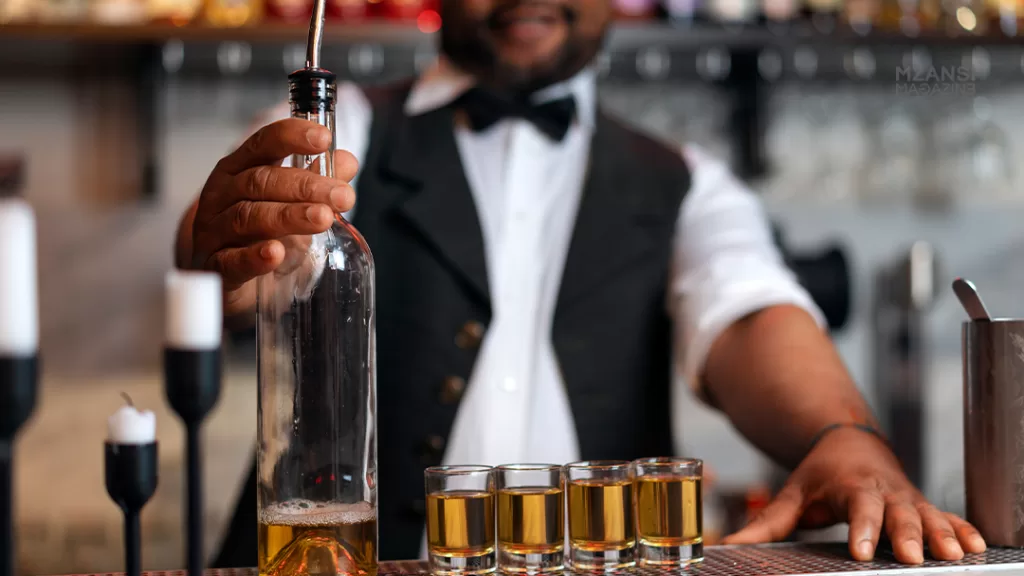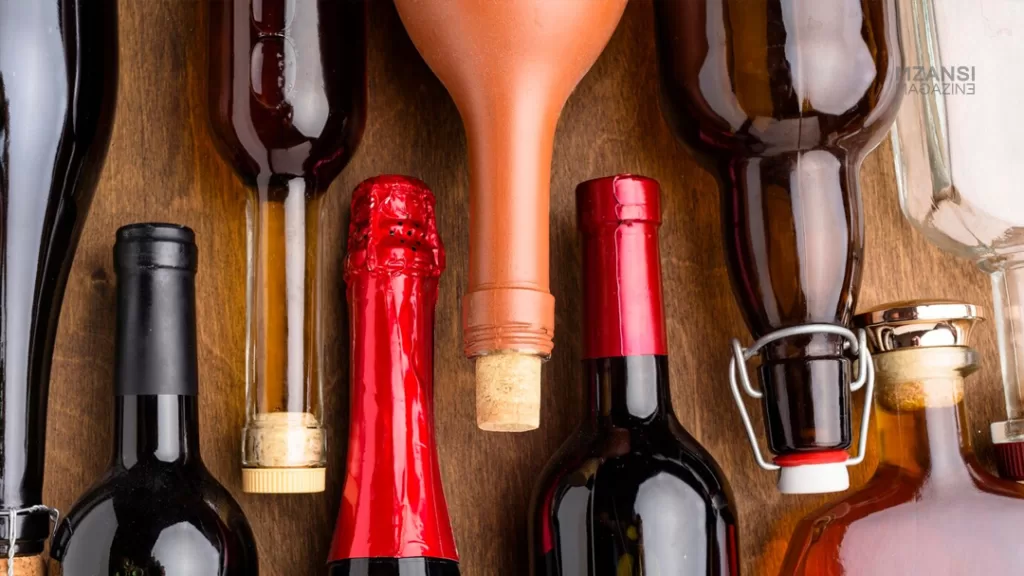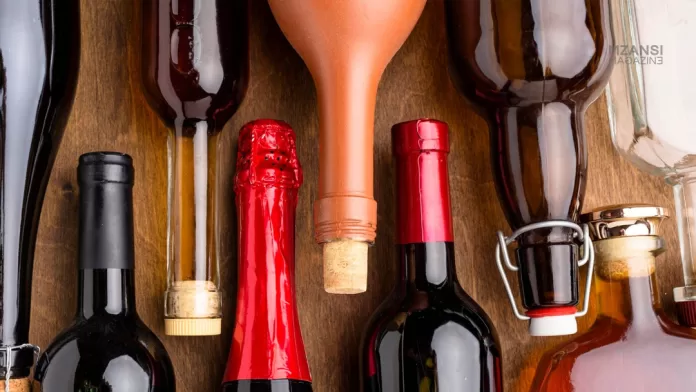How To Get a Liquor License in South Africa
Are you looking to venture into the liquor business in South Africa? Securing a liquor license involves a systematic process entailing various legal requirements and procedures. Understanding the steps and specifics is vital to navigate through the application successfully. Let’s explore the essential guidelines for acquiring a liquor license in South Africa.
Table of Contents
Understanding the License Costs
Before starting the process of obtaining a liquor license in South Africa, it is crucial to understand the expenses involved in it. The cost to obtain a liquor license typically varies from R5,000 to R25,000 depending on the province and municipality where the license applicant intends to operate.
Acquiring a liquor license is not just a legal requirement but also offers the advantage of procuring stock directly from South African Breweries (SAB) at reduced prices, providing a competitive advantage in the liquor business. Prospective applicants must consider these financial aspects and plan accordingly to meet the financial demands for a successful liquor license application.
The diverse range of costs for obtaining a liquor license demonstrates the significance of provincial and municipal factors in determining the financial investment required. While the expense can fluctuate based on location, aspiring license holders must acknowledge these variances and prepare financially for the specific costs in their intended area of operation.
Understanding and budgeting for these costs not only facilitates a smoother application process but also underlines the broader economic advantages, such as discounted purchasing rates from major breweries, investing in a liquor license, and a strategic business move in the competitive industry.

Initiating the Licensing Process
Commencing the licensing process for acquiring a liquor license in South Africa involves several pivotal steps, the foremost being acquiring a SAPS clearance certificate affirming a clean criminal record. Initiating this process is essential, considering the considerable time it might take—up to six weeks—emphasising the need for early action. Once this vital clearance is secured, potential applicants can navigate the subsequent steps more seamlessly.
Moreover, the necessity for premises or a site before applying for a liquor license underscores another initial requirement. The premises must meet specific criteria, including a minimum area of 50m2 for the public area and a location at least 500m away from places of worship, schools, or libraries. Adhering to these prerequisites and commencing the process with a strong foundation is critical to a successful liquor license application.
Before obtaining a liquor license in South Africa, prospective individuals or businesses must understand the preceding procedures. The first step is obtaining a SAPS clearance certificate, proving the applicant has a clean criminal background. This process can take some time, so it’s vital to get started on it as soon as possible.
Another essential requirement is securing suitable premises that meet specified criteria, such as size and distance from sensitive establishments. By completing these initial prerequisites, potential applicants can lay a strong foundation for a successful application. It can streamline the subsequent stages in the complex and comprehensive process of obtaining a liquor license in South Africa.
BEE Certificate Requirement
The recent legislative amendments in South Africa have introduced a pivotal requirement for a Black Economic Empowerment (BEE) certificate for liquor license applications. This certificate is mandatory for legal business entities seeking a liquor license, underscoring the emphasis on economic empowerment and transformation within the country.
As part of the application process, acquiring a BEE certificate from an accredited BEE rating agency has become a fundamental requisite, promoting inclusivity and diversity in the liquor industry. Understanding and fulfilling this requirement is crucial for all entities pursuing a liquor license, aligning with the government’s broader objectives of fostering a more inclusive and economically empowered business landscape.
Including the BEE certificate as a prerequisite in liquor license applications signifies a progressive step towards ensuring equity and representation in South Africa’s business sphere. This requirement not only reflects the government’s commitment to empowering historically disadvantaged groups but also highlights the strategic importance of diversity and inclusion in the broader economic landscape.
Aspiring license holders, both individual applicants and legal entities, must recognise the significance of this requirement and engage with accredited BEE rating agencies to obtain the necessary certification to fulfil the criteria outlined in the new legislative regulations. Understanding and meeting this requirement positions applicants to navigate the application process successfully, contributing to a more diverse and empowered business environment in the country.
Types of Liquor Licenses Available
In South Africa, liquor licenses are classified into distinct types, each with specific provisions and limitations. These licenses include Consumption Liquor Licenses, which cater to establishments such as restaurants, pubs, and taverns where liquor is meant for on-premises consumption only. Contrarily, another category of Consumption Liquor
Licenses applies to liquor stores where the purchased liquor is not intended for consumption on the premises. Additionally, Wholesale and Distribution Licenses allow the sale of liquor to licensed entities like pubs, liquor stores, and the general public. At the same time, Manufacturers of Liquor Licenses are specific to those involved in liquor production. Understanding these varying categories is crucial for aspiring license holders to determine the most suitable license aligned with their business model and objectives in the liquor industry.
The diversified spectrum of liquor licenses available in South Africa offers distinct opportunities and restrictions. Applicants must grasp the nuances and functionalities of each type to make informed decisions. Whether aspiring to establish a restaurant where liquor is consumed on-site or a liquor store focused on off-site sales, choosing the appropriate license type aligning with the business’s purpose and nature is pivotal.
Likewise, comprehending the restrictions and privileges associated with Wholesale and Distribution Licenses or Manufacturers of Liquor Licenses is essential for those engaged in production or supply. Choosing the right category that best fits the business model ensures compliance with legal regulations and optimises the potential for success in the liquor industry.

License Renewal and Application Lodgment
In South Africa, liquor licenses must be renewed annually with strict adherence to specific timelines and procedures. License holders must be attentive to the renewal deadlines, ensuring applications are lodged at the appropriate times. The lodgment of liquor license applications is restricted to the first Friday of every month, requiring notices to be published in the government gazette approximately two weeks before the lodgment date.
Missing these crucial dates might lead to delays, necessitating reinitiating the application process in the subsequent month. This strict adherence to specific timelines underlines the significance of timely renewal and meticulous attention to procedural requirements, ensuring the continuity of the liquor business without interruptions due to expired licenses.
The license renewal and application lodgment for liquor licenses in South Africa involves stringent timelines and adherence to legal requirements. Please lodge applications on the stipulated first Friday of each month or include the necessary publication and notification dates in the government gazette to ensure the successful renewal of licenses.
Attention to these essential deadlines is crucial for license holders, highlighting the importance of complying with these specific timeframes to maintain the continuity of their liquor business operations. Adhering to these procedural norms ensures a seamless renewal process, allowing businesses to continue their liquor-related activities without disruption due to lapsed licenses.
Property Requirements
Property requirements are pivotal in acquiring a liquor license in South Africa. Potential license holders must adhere to specific criteria outlined by local municipalities and planning departments. One fundamental requirement is the property’s zoning, determining its suitability for different types of liquor licenses, be it for a liquor store, restaurant, tavern, club, or other establishments.
The local municipality’s Planning or Land Use Department issues a Local Authority Approval (LAA) letter confirming the suitability of the premises for the intended liquor business. Additionally, the property’s proximity to similar licensed premises, educational institutions, or religious centres is a crucial consideration, essential for maximising the chances of a successful license application.
Understanding and complying with the distinct property requirements set forth by South African municipalities is critical for those seeking a liquor license. Adherence to zoning regulations, proximity to specific establishments, and acquiring necessary approvals are integral to the application process.
It’s essential for potential license holders to engage with local authorities to secure the required documentation, ensuring that the proposed premises meet the stipulated criteria. This attention to property prerequisites forms a cornerstone of the licensing process, enabling applicants to navigate the legal and administrative landscape effectively and increase the likelihood of a successful liquor license application.
You can apply for a liquor license on-premises if the building needs to be built or needs alterations or renovations. We will apply for the license from the plan (on conditional granting); however, you will extend the waiting period for the license. It is recommended for time purposes that the premises are ready to trade upon inspection from the liquor board inspector or designated police officer.
The licensee shall always display the Liquor License at a conspicuous place on the premises. It is advisable to attach the proof of payment of the Liquor License for the current year to the license as well as the Appointment of Manager Certificate and other related documentation.
Crucial Documentation for Application
Applying for a liquor license in South Africa involves a meticulous collection of essential documentation. Aspiring license holders must compile a comprehensive set of documents, including clearances, agreements, and specific certifications. These crucial documents comprise a variety of certifications, such as the SAPS clearance certificate validating a clean criminal record, agreements with the landlord or title deed for the premises, zoning certificates, tax clearance certificates, and affidavits, among others. Attention to detail in preparing these documents is paramount, ensuring their completeness and accuracy, as they form the backbone of a successful liquor license application. Adhering to the requirements for necessary paperwork ensures compliance with legal prerequisites and substantially increases the likelihood of a favourable assessment by the relevant authorities.
The completeness and accuracy of the documentation play a significant role in the success of a liquor license application in South Africa. Aspiring applicants must be diligent in gathering and preparing all the required paperwork. Understanding the specific requirements for certifications, agreements, and clearances is essential. Engaging with the correct authorities and agencies to secure the necessary documents, such as zoning certificates and tax clearances, is crucial for a smooth and successful application process. This focus on preparing and presenting the proper documentation is a crucial factor in the evaluation process, ensuring the application aligns with legal standards and regulations for acquiring a liquor license in South Africa.
The Licensing Procedure
Obtaining a liquor license in South Africa involves a complex process that consists of multiple stages and assessments. After submitting the application, the liquor board’s inspectorate conducts site inspections to evaluate the suitability of the premises and ensure compliance with the regulations. A report is then filed, which is reviewed by local committees that make recommendations to the Liquor Board.
Finally, the Liquor Board makes the ultimate decision to either grant or refuse the application. This comprehensive process ensures that liquor licenses are granted responsibly, taking into account the impact on the community and adherence to legal and regulatory standards.
Understanding the intricacies of the licensing procedure is essential for potential liquor license applicants in South Africa. The process involves rigorous assessments, from site inspections to reviews by local committees and, ultimately, the decision-making phase by the Liquor Board. Successful navigation through these stages requires a comprehensive understanding of the regulations and guidelines outlined in the liquor licensing process.
Applicants must prepare and present a robust application supported by necessary documents and compliance measures to navigate through the intricate evaluation process successfully. Compliance with legal requirements and adhering to the licensing procedure ensures a responsible and regulated approach to obtaining a liquor license in South Africa.
Post-Application Procedures
After the application for a liquor license in South Africa is submitted, a series of post-application procedures ensue. These include subsequent inspections and meeting the specified requirements for certificates of fire safety and acceptability before the actual issuance of the license. Post-application, the liquor board may require a final inspection, especially for establishments undergoing construction or refurbishment.
This inspection ensures compliance with the stipulated standards, while the adherence to fire safety and acceptability certificates demonstrates the premises’ suitability for operating a liquor business. Completing these post-application steps is crucial for the final issuance of the liquor license, as they ascertain the establishment’s adherence to safety and regulatory measures before commencing liquor-related operations.
Post-application procedures for a liquor license in South Africa demand meticulous attention to further compliance and inspection processes. The subsequent steps, involving final inspections and acquiring safety and acceptability certificates, are pivotal to meeting the stipulated standards.
As part of these procedures, establishments must ensure they align with fire safety regulations and demonstrate the premises’ acceptability for liquor-related activities. Completing these post-application requirements not only demonstrates adherence to safety standards but also ensures that the establishment is fully compliant with the regulatory framework, thereby paving the way for the ultimate issuance of the liquor license for lawful business operations.
Department Contacts and Resources
For individuals or entities seeking guidance and further information on obtaining a liquor license in South Africa, various department contacts and resources are available. The Department of Trade and Industry, particularly the National Liquor Authority, serves as a primary contact point for inquiries and support regarding liquor licensing. Their office in Pretoria provides essential information, guidance, and assistance to those navigating the complexities of the application process.
Additionally, regional offices, such as the Liquor Licensing offices in Johannesburg, offer localised assistance, aiding applicants in understanding the specific regional regulations and procedures. Online resources such as the Ecodev provide access to the Liquor Act and Regulations, providing a comprehensive reference for those delving into the intricacies of liquor licensing in South Africa.
Accessing department contacts and resources is essential for individuals or entities delving into the intricacies of acquiring a liquor license in South Africa. The Department of Trade and Industry, particularly the National Liquor Authority, is a vital contact point offering crucial information and assistance. The regional offices, such as the Liquor Licensing office in Johannesburg, provide localised support, aiding in navigating the specific regional regulations.
Online platforms like the Ecodev website serve as valuable resources, offering comprehensive insights into the Liquor Act and Regulations, ensuring that aspiring license holders have access to detailed information to guide them through the intricate process of obtaining a liquor license in South Africa.
Please note. Section 23 (3) of the Gauteng Liquor Act 2 of 2003
If the Board rejects a license application, no new application can be made for the same premises within one year of the rejection date unless the Board grants special permission. It is essential to ensure that all documents submitted for license application contain accurate information.
LiquorLicense.co.za™ will provide complete assistance for the application process, but the client remains fully responsible for the information provided. Please note that LiquorLicense.co.za™ cannot guarantee any application or liquor license submission, as we have limited access to the client’s information and can only use the documents provided by the client, applicant, or franchisee.
Conclusion
Securing a liquor license in South Africa demands a meticulous understanding of the intricate process and stringent requirements set forth by the regulatory bodies. This comprehensive process involves adhering to specific timelines, ensuring the completeness of essential documentation, and navigating through diverse legal and administrative procedures. The emphasis on property suitability, essential certifications, and compliance with regulations underscores the complexity and importance of the application journey.
Obtaining a liquor license is not merely a legal prerequisite but a strategic step in establishing and maintaining a thriving business within the liquor industry. Successful applicants must approach this process with a thorough understanding of the nuances, leveraging department contacts and resources to ensure compliance and alignment with the regulatory landscape.
In conclusion, acquiring a liquor license in South Africa demands a holistic approach, encompassing legal compliance, property suitability, and meticulous adherence to detailed procedures. Aspiring license holders need to engage with regional offices, such as the National Liquor Authority and local licensing boards, and utilise online resources to comprehend the multifaceted aspects of the application process.
The success of an application lies in meticulous preparation, ensuring that all necessary documentation is complete and accurate, thereby enhancing the prospects of a successful evaluation by the relevant authorities. Obtaining a liquor license in South Africa is not solely about legal formalities but a strategic and crucial step towards establishing a compliant and prosperous venture in the liquor industry.

FAQs – How To Get a Liquor License in South Africa
What are the costs involved in acquiring a liquor license in South Africa? The cost typically ranges between R5,000 and R25,000, subject to variation based on the location and the nature of the intended liquor business.
Is a BEE certificate mandatory for all liquor license applicants? Yes, a BEE certificate is mandatory if the applicant is a legal business entity, and you must obtain it from an approved BEE rating agency.
What is the process for license renewal in South Africa? It would help if you renewed all your licenses annually. The renewal process entails application lodgment on the first Friday of every month.
What are the critical property requirements for a liquor license application? Property zoning and location play a significant role. The proximity to other licensed premises, schools, and churches is crucial.
How long does it take to receive a liquor license in South Africa? On average, it takes about three months from the date of application, but this can vary based on the workload and inspection time.
Applying for a liquor license in South Africa requires meticulous attention to detail, adherence to legal procedures, and comprehension of specific requisites. Engaging with the correct authorities and understanding the nuances of the process is vital for a successful application.

